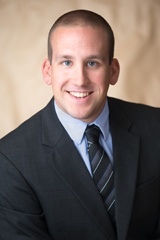WCD Seeks Input on Significant Changes to OAR 436
By: Kevin Anderson
 Over the last few months, the Oregon Workers’ Compensation Division was considering making significant changes to OAR 436 in light of two recent court decisions. (Brown v. SAIF, 262 Or App 640 (2014); Schleiss v. SAIF, 364 Or 637 (2013).
Over the last few months, the Oregon Workers’ Compensation Division was considering making significant changes to OAR 436 in light of two recent court decisions. (Brown v. SAIF, 262 Or App 640 (2014); Schleiss v. SAIF, 364 Or 637 (2013).
The WCD has decided to move forward with a formal rulemaking hearing. While there are many changes to administrative rules, I have highlighted some of the more significant aspects below:
- Impairment will be awarded for the accepted conditions, direct medical sequela, and now for any condition directly resulting from the work injury;
- If the compensable injury resulted in permanent impairment, the impairment is only apportioned to denied, superimposed, or legally preexisting conditions (as long as it is not otherwise compensable);
- In order to avoid a closing exam, the attending physician must specify there is no reasonable expectation of permanent impairment or work restrictions from the accepted condition, medical sequela, or any condition directly resulting from the work injury;
- Medically stationary status will be based on whether the worker is medically stationary from the work injury and will require a statement from the attending physician that all accepted conditions, direct medical sequela, and any condition directly resulting from the work injury are medically stationary;
- Work disability will be based on whether a worker can return the “job held at the time of injury” instead of the current “regular work” standard;
- Additionally, permanent work restrictions that were caused in any part by the compensable injury will be considered in work disability, not just the restrictions from the accepted conditions;
- A worker’s Residual Functional Capacity will no longer have reference to the work injury or accepted conditions;
- For hearing loss in injury claims, presbycusis will not offset occupational hearing loss unless it qualifies as a preexisting condition (previously treated/diagnosed); it will not change occupational disease hearing loss claims.
The WCD will meet on December 19, 2014 at 9:00 a.m. in Salem to discuss these rule changes. The committee would like testimony from insurers, administrators, employers, and anyone potentially affected by these changes. You can also submit written testimony through December 29, 2014.
The WCD specifically is looking at the cost for insurance companies and employers and whether it would complicate the claims administration process. It would also be helpful to present examples of any particular cases where the distinction between the work injury and the accepted condition made a significant impact on claim processing. Additional information for how you can help is below.
If you would like a copy of the proposed rules:
- Visit the WCD’s website – http://www.wcd.oregon.gov/policy/rules/rules.html#proprules
- Or call 503-947-7717 to receive free paper copies
If you would like to attend to the meeting:
- December 19, 2014, at 9:00 a.m.
- Labor & Industries Building, 305 Winter Street NE, Room F (basement), Salem, OR 97301
If you cannot attend the meeting:
- Dial-in number is 1-626-677-3000; Access code is 786664; Lines open at 8:45 a.m.
- Send written comments to:
o Mail: Workers’ Compensation Division, PO Box 14480, Salem, OR 97309-0405
o In person/courier: Workers’ Compensation Division, 305 Winter Street NE, Salem, OR 97301
Please feel free to contact me: if you have any questions or concerns about these rule changes or the upcoming meeting.

